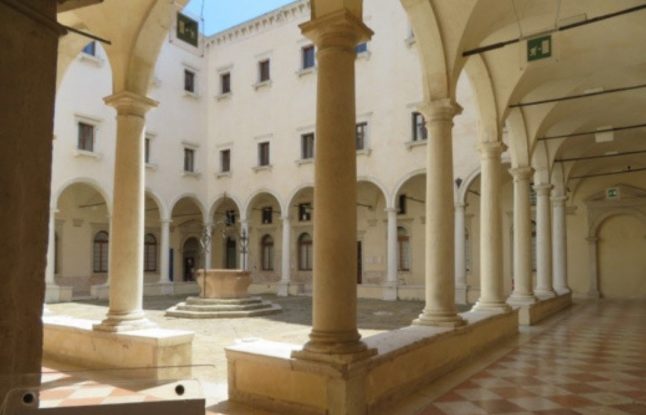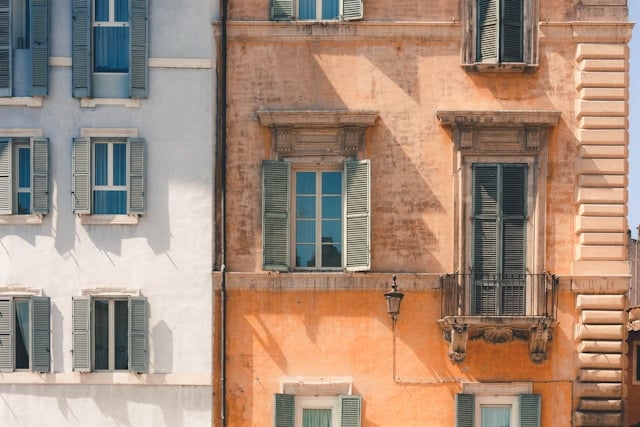The Italian government announced this summer that it would be auctioning off dozens of state-owned properties in the hopes of raising up to a billion euros, ranging from an ex-convent in Venice to army barracks, half a golf course, and a lighthouse.
The details of the 93 properties for sale are now online ahead of the auctions, the first of which are to be held on October 16-17.
Italy owns a large number of buildings, donated to or confiscated by the state over the years, which stand unused and are costly for authorities to maintain.
The government hopes the auctions will raise around €950 million. But even if the properties only go for their starting prices, €145 million will be raised, which the government has saiid will help fund its expensive vote-winning policies such as those on pensions and welfare.
After months of tussling with Brussels over plans for even more public spending, the Italian government hopes the money raised from the sale of property will give it some leeway.
Italy is weighed down by €2.4 trillion in public debt – the highest in Europe after Greece.
But whether or not this property sale will help Italy dig itself out of this deep financial hole, there's no doubt it's good news for anyone interested in buying and restoring a unique piece of Italian history.
The Agenzia del Demanio (Italy's state property agency) has listed the properties online ahead of the auctions, complete with photos, drone videos and virtual tours of the properties. While many are priced in the millions of euros, there are also some more modestly-priced properties going under the hammer.
From grand palazzi and a convent in Venice to a lighthouse in Calabria, here are some of the properties you could bid on.
Villa Camerata, Florence
A former noble residence set in parkland on the slopes of the Fiesole hill, to the north-east of Florence. Starting price: €7.4 million.
Palazzina Magnani, Bologna
This once grand two-story villa in Marconi, central Bologna, is complete with a typical Bolognese arcaded gallery overlooking a garden. Starting price: €1.9 million
A historic palazzo in central Piacenza, a short distance from central Piazza Cavalli. This vast renaissance-style building has three internal counrtyards. Starting price: €3.1 million
Ex-convent of San Salvador, Venice
By far the most expensive property up for auction is this former convent in central Venice. No doubt this large, prestigious property will be snapped up by a hotel developer with its central location, large courtyard and frescoed halls. Starting price: €28 million
Lighthouse, Calabria
Built in 1923, this lighthouse is the last on the Ionian coast of Calabria, about 100 metres from the sea. Sold as part of a small complex of buildings, it's immersed in unspoilt nature. Starting price: €309,000
Fort Barbarigo, Venice
This very unique plot of land comes with its own ruined fort, dating back to 1800 and currently belonging to the italian navy. It's in Ca Roman, on the southern edge of the coastline that separates the Venice lagoon from the sea, and forms part of the UNESCO-listed area of central Venice and its lagoon. Starting price: €690,000
Army outpost, Cuneo
This mountain hut at 1,900km above sea level, once a remote army base, is at the beginning of hiking trails through the Valle Varaita. Starting price: €130.000.

See mall 93 listings and find further information on the official Agenzia del Demanio website.
MORE PROPERTY:




 Please whitelist us to continue reading.
Please whitelist us to continue reading.
Member comments